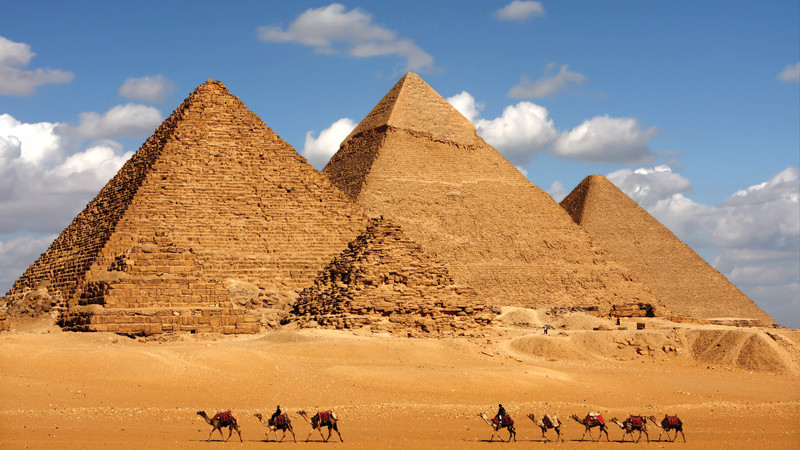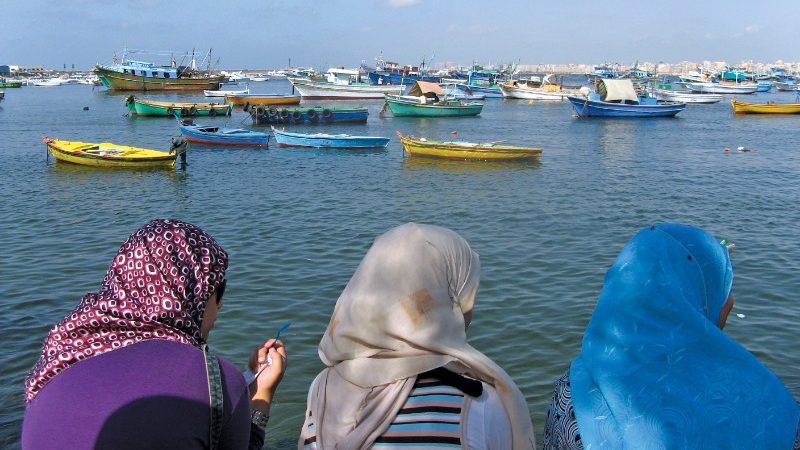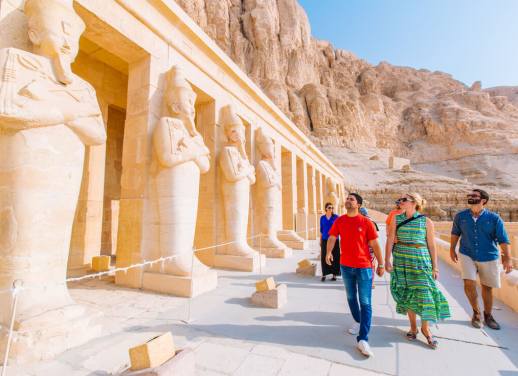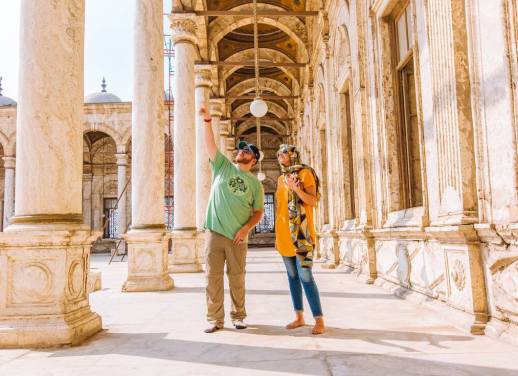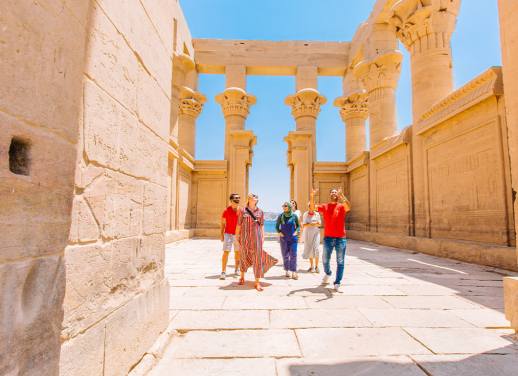Egypt has so much to offer the keen traveller. It’s a little bit Africa, a little bit Middle East and a whole lot of amazing, but if you’re a first-time visitor, it’s important to be aware of local etiquette and customs.
Egypt follows much of the same traditional conventions as other countries where Islam is the official religion, but keeping the following advice in mind can also be helpful:
Behaviour
Egypt is conservative. Very conservative. You won’t find couples cuddling and kissing in public, as any type of public affection is a big no-no (even handholding isn’t really approved of). The reverse side is that Egyptian men can be very flirtatious with women travellers, such as following them, remarking on their beauty – even hissing – which can be confronting and annoying. In most cases, they’re harmless, as it’s frowned upon for a man to touch a woman he isn’t married to. Ignoring them is your best option. But if you find yourself in a situation where someone gets a bit ‘handsy’ or a persistent local makes you uncomfortable, raise your voice and assertively tell him no. Fearing he’ll draw attention to himself, he’ll most likely back away quickly.
While wandering around, keep in mind that pointing can also be considered rude, so gesture with your open hand if needed.
Dress
Conservative dress is essential for both sexes. Pack clothing that covers both shoulders and knees; women in particular should take care to cover cleavage and wear loose-fitting clothing, like long flowing skirts or maxi-dresses, rather than figure-hugging attire. It’s a good idea to pack a scarf/wrap or light cardigan to cover your shoulders (and hair if entering a mosque) without overheating.
Also on the must-pack list is comfortable walking shoes. While sandals are acceptable attire, the streets in Egypt, particularly in Cairo, aren’t spectacularly maintained (lots of uneven roads, holes, etc) and can be quite dirty. Rather than returning to your hotel with filthy feet and a rolled ankle, it’s better to bring some sturdy walking shoes. If you’re visiting a mosque or private home, you’ll probably be asked to remove your shoes.
Shorts/swimwear are only acceptable at beachside resorts.
Be respectful and don’t be the person who demands to wear what you want. Not adhering to a conservative dress code will almost always result in unwanted attention and disapproving looks from the locals.
Dining
It’s polite to leave a little bit of food on your plate when you’ve finished eating to indicate you’ve been well fed and aren’t still hungry. Another tip to keep in mind is that each hand has a purpose: the right is for most everyday tasks, while the left is reserved for ‘unclean tasks’ (like wiping yourself after using the bathroom, or putting on your shoes). If you’re a south paw, be mindful not to eat directly with your left hand. Using cutlery solves the issue, but passing food to another person or using your left hand to directly put food into your mouth is considered unhygienic.
Money
Money is an interesting travel topic for Egypt as it’s a system based heavily on ‘baksheesh’ – essentially, tipping. Similar to the United States, it’s standard to tip taxi drivers and waiters; however you’ll also encounter people wanting baksheesh for helping you take your luggage to your room, and the luxury of toilet paper in public bathrooms. Bring a small pack of tissues when you venture out and carry small notes and coins, so you’ll always be prepared. A word of warning though – money is Egypt is extremely dirty (greasy and smelly), so you might want to carry some hand sanitiser with you as well.
When shopping, bring your best bargaining skills as just about everything is negotiable and haggling is expected.
Egypt also has a healthy population of scammers, and you’ll encounter them from the moment you get off the plane. Usually they’re locals enthusiastically offering to take you to their cousin’s shop or be your local tour guide, in exchange for baksheesh (of course!). As a rule, it’s usually better to simply say “la shukran” (or no, thank you) and keep walking. Excursions that are pushed onto tourists are often heavily overpriced, so travelling with a group eliminates much of this.
Generally speaking, Egypt is safe and Egyptians are friendly towards travellers. However, travelling on a group tour usually circumvents many of the hiccups that new or nervous travellers might encounter. Even for seasoned travellers, visiting Egypt in a group provides greater security and less opportunity for travel misfortunes or tourist scams. From a practical standpoint, it also means you’ll be travelling with experts so you can spend your precious travel time actually enjoying yourself, rather than working out your itinerary and negotiating with transport and tour providers.
Put your local etiquette knowledge to the test on an Intrepid adventure in Egypt!
Feature image C/O Shutterstock.

